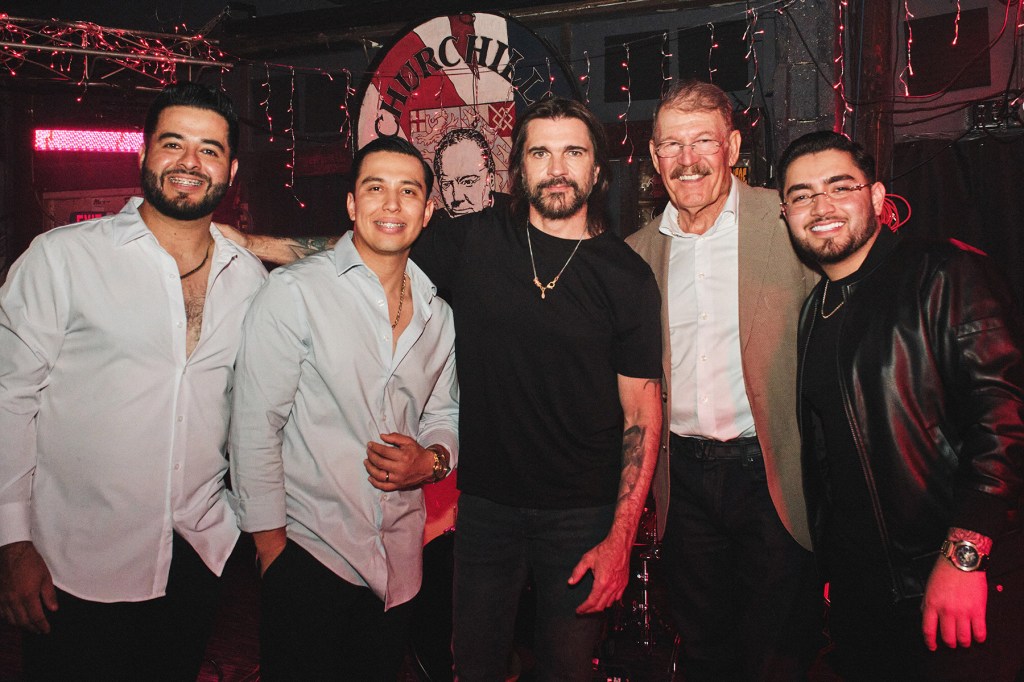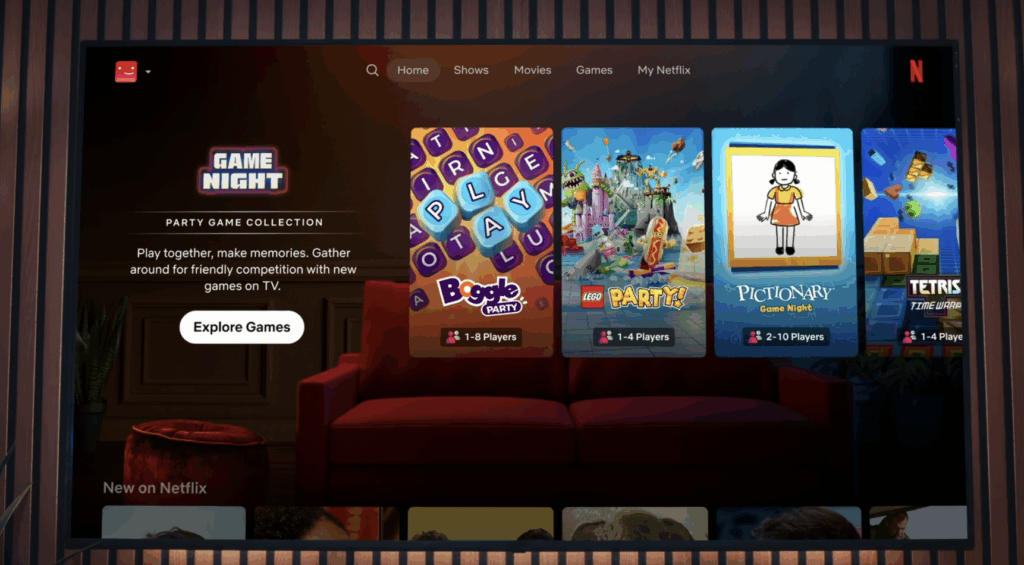Author: djfrosty
Page: 84
Trending on Billboard
Just because an AI-generated track makes— or even tops — a Billboard chart doesn’t mean it’s very popular.
Take, for example, Breaking Rust, an AI-assisted artist that attracted global attention for reaching No. 1 on the Country Digital Song Sales chart. Breaking Rust’s track “Walk My Walk” amassed approximately 3,000 track downloads in the week ending Nov. 6, according to Luminate. “Don’t Tread on Me” by Cain Walker, another AI-assisted country artist, is currently at No. 3 after selling approximately 2,000 downloads in that same week. That’s all it takes to top a genre download chart these days.
Related
The digital download is a relic of an era when iTunes ruled the music industry and streaming was in its infancy. Over the years, as consumers shifted to subscription streaming platforms, downloads have all but disappeared from the landscape. In 2024, downloads accounted for $329 million, according to the RIAA, approximately 2% of U.S. recorded music revenue. That’s down 86% from 2015, when downloads generated $2.3 billion and represented 34% of the U.S. market. Revenue from subscription streaming platforms, which now play a major role in the most well-known charts, climbed 860% to $11.7 billion over the same time span.
Pop songs put up much better numbers. As Billboard noted in an article on country executives’ reactions to Breaking Rust and Walker, the top track on the all-genre Digital Song Sales chart, Taylor Swift’s “The Fate of Ophelia,” sold 29,000 copies. But even the most popular pop download doesn’t do the numbers seen just a decade ago. The No. 1 track in the same first week in November 2015, “Hello” by Adele, sold a whopping 636,000 units.
To put Breaking Rust and Walker’s popularity into a better context, it helps to know where they rank amongst their human peers. For the week ended Nov. 6, Breaking Rust was ranked No. 228 among country artists in terms of equivalent album units (EAUs, which combine streams and sales into a single metric). No. 1 country artist Morgan Wallen had 113 times more EAUs and 227 times more EAUs than Walker, who was No. 359. It would take 13 Breaking Rusts and 25 Walkers to equal the No. 18 artist, Bailey Zimmerman.
Billboard
The most successful AI artist is currently Xania Monet. Her creator, Telisha Jones, writes the lyrics and uses an AI platform to create the music. Monet has been on Billboard charts such as R&B Digital Song Sales, Hot Gospel Songs and Emerging Artists. But among artists of all genres, Monet ranked only No. 927 in terms of EAUs in the week ended Nov. 6, about equal to Cyndi Lauper and French Montana — artists who, unlike Monet, aren’t currently being promoted to terrestrial radio and attracting worldwide fascination.
To be sure, many human artists would love to have the sales and streaming numbers of these AI-assisted artists. Walker and Breaking Rust are No. 9 and No. 11, respectively, on the Emerging Artists chart, right behind country singer Alexandra Kay, who is signed to BMG-owned BBR Music Group and regularly sells out theaters around the country. In the U.S., Breaking Rust has 9.3 million streams to date, while Walker has 1 million, according to Luminate — the kind of numbers achieved by developing artists backed by record labels and artist managers.
Related
But the AI artists attracting headlines and creating consternation within the music industry don’t have popularity to match the attention they’re getting. They are making noise mainly by getting onto download charts, which don’t reflect how most Americans consume music. Nor are they likely to have the longevity of other artists. Walker, ranked No. 359 amongst country artists, is just a few spots below country legend Hank Williams. But nobody is saying that Walker matches the popularity of Williams, an inductee into the Country Hall of Fame, Songwriters Hall of Fame and Rock and Roll Hall of Fame.
That’s not to say AI artists aren’t having an impact. They’re quickly growing in numbers, and it’s not difficult to imagine that they could soon gobble up much more market share.
Take the 10 AI-generated or AI-assisted artists mentioned in Billboard’s Nov. 4 article about AI artists who landed on the charts. The 10 artists mentioned in that article — including Juno Skye, Enlly Blue, Unbound Music, Ruby Darkrose and ChildPets Galore — have an average EAU in 2025 of approximately 7,200 units. That’s not much. But 1,000 of these AI artists, in aggregate, could have a legitimate impact: 1,000 artists at 7,200 units is 7.2 million units — equal to a 0.7% year-to-date U.S. market share. That’s on par with large independent record labels like Big Machine Label Group (0.78%), BMG (0.77%) and Secretly Distribution (0.75%). Two thousand AI artists with an average of 3,600 AEUs would have the same collective market share. Or 4,000 AI artists with an average of 1,800 AEUs.
An invasion of AI music may feel like a dystopian future to most people, but it’s a plausible scenario. A person reading about Xania Monet or Breaking Rust could experience the same spark of inspiration felt by teenagers seeing punk rock bands in the mid to late ‘70s. Punk grew quickly because starting a band required a passion for music, not musical expertise. When millions of people read about AI artists on the charts, some of them will have the same realization that kids had in the ‘70s: “If they can do it, why can’t I?”
Billboard determines if a charting title is AI or AI-assisted through checking the artists’ official pages, some of which say they are generated with the help of AI; cross-checking the songs using Deezer’s AI detection tool, which adds a flag to all AI-generated content on the platform; and reaching out to the creators themselves, among other methods.
Trending on Billboard
When the name Q Parker is mentioned, the first thing that usually springs to mind for most is the Grammy-winning group 112. Between the mid-‘90s and the mid-’00s, the R&B quartet’s mesmerizing harmonies were a radio staple, thanks to classics such as “Only You,” “Cupid,” “It’s Over Now,” “Peaches & Cream” and “U Already Know.”
Explore
See latest videos, charts and news
After the members opted to pursue solo projects, Parker released his first solo studio album in 2012, The MANual. Now 13 years later, Parker is back — and he’s still got love and romance on his mind. Released today (Nov. 14), sophomore solo set Evolution of Romance, Volume One (on Parker’s Paramount Collective Ventures label via ONErpm) is a melodious, insightful, sensual and frank 34-minute discourse on a topic that never loses its allure.
“I want this project to be a conversation between men and women about affection, courtship, support, love; all the things that true romance encompasses,” Parker — the self-proclaimed “Romance Dealer” — declared ahead of the album’s release.
Romance aside, the album is just as much about the evolution of Parker as a solo artist and songwriter. In the latter arena, his penmanship credits beyond 112 include Faith Evans, New Edition, Keyshia Cole and The Notorious B.I.G. Among Parker’s collaborators on Evolution of Romance are Felly the Voice (Chris Brown, Usher), Blac Elvis (Ciara, Kelly Rowland) and Rico Love (Beyoncé, Usher). The album has spun off three singles: “Keep on Lovin’,” “BEG” (his first top 10 solo hit on Billboard’s Adult R&B Airplay chart) and “Triple F’s (F Me. Feed Me. Be a Fan of Me)” Additional standouts include the one-two punch of “Put It On” and “Take It Off,” plus “World War.”
“I’m staying committed to R&B because I know it’s a place that listeners long for and ask for — and I’m here to deliver,” says Parker. “I’m not going anywhere anytime soon.”
Below, he talks more about the new set, and about the challenges of going it on his own.
Why the long break between your first and second solo albums?
I was just trying to figure out my place. What I like to do is review what’s out in the market and find where I can occupy a space that I can own. I identified that romance was missing; that we [R&B singers] haven’t been paying the right kind of attention to the ladies for a while. From there, it was: “How can I sing and tell stories about romance?” I wanted the album to feel nostalgic but also have a contemporary feel; to be authentic by telling real stories from my life and that of others I’d had conversations with. I wanted to contribute to the legacy of Black male R&B artists who have upheld the genre.
But romance isn’t quick. You have to let it marinate so it can be delivered in a subtle, gentle way — which I can’t do all in one volume. So there will be a volume two and three … and potentially a fourth.
Press materials describe the album as “grown-man R&B.” How did that factor into the sensual scenario spelled out in your latest single “Triple F’s”?
I wanted the records to hit home so everybody can find their place in the lyrics, melodies, instrumentation and delivery of my vocal performance. “Triple F’s” is about males having the microphone to share what we need from the women in our lives. And I think I eloquently summed it up. Obviously, the first F is literal. It means we need the passion, the intimacy of that physical touch. The second F, feed me, is about needing the soul to be fed. And the final F is for fan. Support me; cheer me on. When we get those three things from our women… man, the sky is not [even] the limit.
What’s been the most difficult challenge in going solo?
Being given the opportunity to just be Q Parker. That’s not taking anything away from what I’ve done in the first half of my career with my [112] brothers, because that’s legendary and will forever be etched in the record books. However, Q Parker does have something to say too. It’s difficult when the public is so accustomed to only what they want. Sometimes they’ll say, “I want 112 or nothing.” I don’t think that’s fair. I’m not saying, “Forget 112.” But please allow Q Parker to really show who I am, and what talents I possess.
How concerned are you about AI’s growing presence in music?
I believe in the advancement of technology. I also strongly believe that when all else fails, you lean on your talent. Now there are some great things you can get from AI. But again, there are ways it can be used negatively. As long as I have breath in my body, I’m not necessarily worried about AI. God gifted me with a talent to write and perform music, so I can still put points on the board.
With volume one taking off, just how heavy will wearing the Romance Dealer mantle become?
It’s not heavy at all because it’s who I am. I grew up watching soap operas, which is where I got a lot of my [early] writing material. I watched my dad wining and dining my mom. And as the youngest of four, I also saw my sisters with their boyfriends. So me being the Romance Dealer is just who I am. I’m an R&B song with legs. [Laughs.]

All products and services featured are independently chosen by editors. However, Billboard may receive a commission on orders placed through its retail links, and the retailer may receive certain auditable data for accounting purposes.
Trending on Billboard
Everything seems to be getting more expensive these days. From eggs to pharmaceuticals, the pressure on wallets can be felt all across the country, especially as the holidays approach. With so much to stress over, travel plans and Christmas shopping, let T-Mobile’s 5G Home Internet plan be your saving grace.
Explore
See latest videos, charts and news
Starting at just $35/month with Autopay; plus taxes & fees and a T-Mobile postpaid voice line you can get reliable 5G home internet. That means no lagging on some of our favorite hobbies like streaming the latest and greatest holiday tracks from your favorite musicians with the family without emptying your pockets.1
You’ve got fast internet for the whole family, giving you crisp, clear access to streaming classic Christmas movies like The Polar Express and Elf, and cheerful holiday albums by way of Mariah Carey or the sultry stylings of Elvis Presley to get you in the holiday spirit. If those holiday tracks aren’t doing it for you, T-Mobile 5G Home Internet’s fast internet is powerful enough to support software to make your own tunes from the comfort of your own home. A good Christmas remix never fails.
From the standard plan, T-Mobile also offers an Amplified plan for $45/month with Autopay; plus taxes & fees and T-Mobile postpaid voice line which includes faster internet than the Rely plan for only $10 more. Finally, you’ve got the All-In plan for $55/month with Autopay; plus taxes & fees and a T-Mobile postpaid voice line that includes everything mentioned above, along with wi-fi mesh extender and streaming perks. This includes Hulu & Paramount + Essential.
The plan is much more affordable than simply shelling out on a singular subscription to those streaming platforms alone. For example, a standard subscription to Hulu is $11.99/month, while a Paramount + Essential plan will run you $7.99/month. Add that up and you’re paying $18 a month, and that’s without the fast home internet. If none of these plans bring you holiday cheer after 15 days, you’ll get your money back.2
Want even more bang for your buck? Now new home internet lines get a snazzy virtual prepaid Mastercard. For the Rely plan, you get $100, $200 for the Amplified plan and $300 when you sign up for the All-in plan for a limited time. You can buy like 60 half-gallons of eggnog with $300. That means more cash back in your pocket.3
The sports world has another high-profile WAG – that stands for wives and girlfriends if you don’t already know – in Megan Thee Stallion, who started dating Dallas Mavericks shooting guard Klay Thompson in the summer of 2025. And just like another pairing between an A-List musician (Meg boasts three no. 1 hits on the […]
Trending on Billboard This is partner content. Myles Smith’s soulful sound has captured hearts across the globe, but in Austin it hit differently. Go behind the scenes as he brings his story and “Get It Together” to life ahead of his White Claw Sessions performance. Jon Weigell: Myles. Myles Smith: Yeah? What are you doing? […]
Trending on Billboard This week, Billboard’s New Music Latin roundup and playlist — curated by Billboard Latin and Billboard Español editors — features new music, including fresh picks by Laura Pausini and Yami Safdie, La Arrolladora Banda El Limón in a collab with Juanes, HUMBE and DannyLux and more. Música mexicana continues to expand, attracting artists across genres to dabble in the style […]
Source: John Shearer / Getty
Right in the middle of some courtroom drama, Nicki Minaj just got hit with a curveball.
Reports recently came out that the NY rapper’s lawyer, Judd Burstein, abruptly backed out of his duties. Nicki has been a longtime client of Burstein, which made the situation even more bizarre. The timing couldn’t be worse, as the Starships artist is in the middle of a $10 million legal battle. With little time to spare, the leader of the Barbz has been scrambling to find a new representation.
The Northstar Group submitted a letter to the judge asking for an extended time on the case since they have recently lost their lawyer.
“The same day, Mr. Burstein abruptly withdrew entirely from his representation of [Nicki and her company], without giving any prior notice. [Minaj and her company] intend to appear and defend themselves in this matter, and we are requesting a stay of the proceedings including all deadlines and further motion practice, so that [Minaj and her company] may have time to find and retain new litigation counsel, have counsel review the case file, confer with their new counsel, and prepare any responsive filings in an orderly manner.”
Nicki Lewinski requested an additional 45 days to get a new lawyer to take on her case.
Burstein made a statement to US Magazine on stepping down from representing Minaj, “After I won a dismissal of Tameer Peak’s defamation lawsuit against Nicki in New Jersey, I declined the opportunity to represent her when Peak refiled it in New York. I believe that it would be inappropriate for me to discuss the reasons why I chose to decline the representation.”

Trending on Billboard Eric Church is giving fans a preview into the cinematic concert extravaganza that his fans will see in February, when Eric Church: Evangeline Vs. The Machine Comes Alive hits IMAX theaters in the United States and Canada for two nights only, on Feb. 11 and Feb. 14, 2026. Explore See latest videos, […]
Netflix / Netflix Game Night
Netflix has shifted its strategy for its gaming venture and is now meeting its subscribers where they are, in hopes of letting them play games on the streaming service.
It’s been four years since Netflix mightily stumbled into the gaming space, but the streaming giant hasn’t given up on its video game ambitions.
The streamer’s new strategy is to bring games to its millions of subscribers so they don’t have to download a separate app, making them playable in the Netflix app on your televisions and turning your smartphones into controllers.
Love Hip-Hop Wired? Get more! Join the Hip-Hop Wired Newsletter
We care about your data. See our privacy policy.
“Starting today (Thursday), you can play games on your TV, using your phone as a controller — no setup needed, it’s as easy as streaming your favorite shows,” said Alain Tascan, President of Games at Netflix. “You can now go from watching KPop Demon Hunters to playing Pictionary: Game Night without ever leaving Netflix. And for those who love to play anywhere and everywhere, we’re bringing even more games to your phone with our own special Netflix touch.”
You and your friends can play games like Dead Man’s Party: A Knives Out Game, LEGO Party!, Boggle Party, Party Crashers, Pictionary: Game Night, and Tetris Time Warp, allowing you to put on the ultimate game night.
Game Night’s other goal is to keep subscribers logged into the service longer while showcasing smartphone interaction, which the company plans to use for live television events like Star Search, a reboot of the classic television series hosted by Ed McMahon, coming to Netflix sometime next year.
So, are you excited to jump into Netflix Game Night? It definitely sounds like it has some legit staying power.
A recently announced Limp Bizkit show in Tallinn, Estonia has been canceled, reportedly due to frontman Fred Durst’s resurfaced comments praising Russian president Vladimir Putin. According to Estonia’s ERR news agency, the show planned for May 31 at Unibet Arena was called off by promoter the Baltic Live Agency (BLA), which announced on Thursday (Nov. 13), “we inform you that due to circumstances beyond the organizer’s control, the Limp Bizkit concert planned for May 31, 2026 is canceled. Our apologies!”
Explore
See latest videos, charts and news
Ticket pre-sales for the show announced on Nov. 7 were set to begin on Monday (Nov. 10) but were reportedly postponed. The announcement of the gig from the newly resurgent nu-metal band reportedly sparked concern in Estonia — which declared independence from former occupier Russia in 1991 — due to previous comments from Durst supporting Russia’s military campaigns.
Specifically, the site reported that the concerns were tied to Durst holding up a sign in 2015 that reportedly read “Crimea=Russia” and “welcome” after the Russian military annexation of Crimea in 2014. After the show was announced last week, ERR reported that the nation’s Ministry of Foreign Affairs said there was no place in Estonia for support of aggressor state Russia.
“Estonia supports Ukraine’s territorial integrity and the principle that every last centimeter of Ukrainian territory belongs to Ukraine,” ministry media adviser Brita Kikkas told ERR. Foreign Affairs minister Margus Tsahkna added, “My position is clear, and I will repeat it: Russia is the aggressor, and Crimea is occupied by Russia. Those who justify Russia’s aggression and the occupation of a neighboring country are not welcome in Estonia. They have no place on Estonian stages and should not be earning income here.”
At press time, spokespeople for the band and the promoter had not returned Billboard‘s request for comment. In addition, the show is not listed on the group’s official tour routing and no longer appears on the site for the Arena; attempts to purchase tickets through Ticketmaster takes fans to an error page reading “the page you requested was not found.”
Promoter BLA told ERR that it was aware of Durst’s sign and that the only explanation was that “at the time (until 2019), Fred Durst was married to a Russian Crimean woman and evidently living in a distorted information bubble.” TMZ reported in 2018 that Durst filed for divorce from his third wife, Ukrainian makeup artist Kseniya Beryazina Durst, after six years.
Durst was reportedly banned from entering Ukraine — which has been at war with Russia since Putin’s forces launched an unprovoked invasion in Feb. 2022 — for five years in 2015 after holding up the abovementioned sign and reportedly expressing interest in buying a house in Crimea a year after Russia’s 2014 annexation of the peninsula widely recognized as part of Ukraine. The singer had earlier claimed that he planned to move to Crimea to produce film and TV content there.
ERR also reported that following Russia’s annexation of the Crimean peninsula, Durst praised Russian dictator Putin, calling him a “great guy with clear moral principles and a nice person.” In 2023 the band dropped a video for “Out of Style,” in which Durst was deepfaked to appear as Putin, while DJ Lethal was mocked-up as Ukrainian president Volodymyr Zelenskyy and guitarist Wes Borland portrayed a smiling President Biden.

 State Champ Radio
State Champ Radio 






